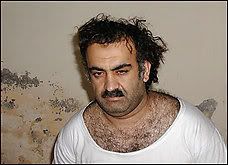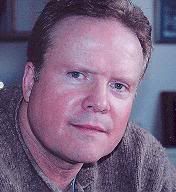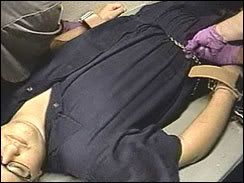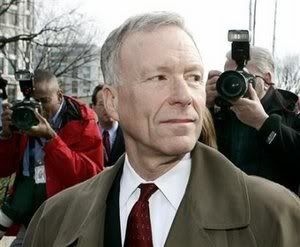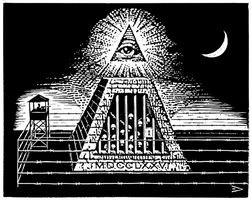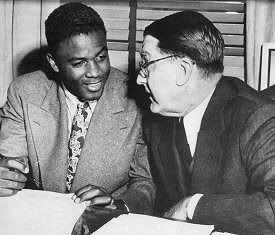 My first love is baseball. I am a Yankee fan. Please don’t snicker. Rooting for the Yankees doesn’t make me a bad person. However, as another opening day approaches, I want to acknowledge the cultural importance of two Brooklyn Dodgers: team President Branch Rickey and second baseman Jackie Robinson. This season marks the 60th anniversary of their collaboration to break major league baseball’s color barrier.
My first love is baseball. I am a Yankee fan. Please don’t snicker. Rooting for the Yankees doesn’t make me a bad person. However, as another opening day approaches, I want to acknowledge the cultural importance of two Brooklyn Dodgers: team President Branch Rickey and second baseman Jackie Robinson. This season marks the 60th anniversary of their collaboration to break major league baseball’s color barrier.Baseball is America’s enduring pastime. Hence, the game is a snapshot of America’s soul. Prior to Branch Rickey and Jackie Robinson, baseball was at the forefront of America’s institutionalized bigotry. Racism was not stigmatized in that era. Indeed, bigotry was mainstream. Just consider the story of Jimmy Claxton.
Claxton was the first black player in organized baseball in the 20th century. In 1916 he pitched in two games for the Oakland Oaks in the Pacific Coast League. The Oakland Oaks believed Claxton was a Native American. Once his race was discovered, Claxton was released. He would later play in the Negro Leagues.
In those days baseball’s ruling class was an aristocracy of white conservative wealthy men with no appetite for change or trailblazers. Baseball Commissioner Judge Keneshaw Mountain Landis and owners such as the Yankees’ Daniel Topping and Del Webb embraced the status quo as fervently as Saudi Arabia’s ruling kingdom. Baseball’s culture did not nurture change agents.
Branch Rickey was the exception. After a mediocre career as a player and manager, Rickey established a legacy as baseball’s most innovative front office executive. With the St. Louis Cardinals in the 1920s and '30s, Rickey invented the modern farm system as a means of training and developing players.
Many fans of my generation are devoted followers of Sabrmetrics and grew up reading Bill James annual Baseball Abstracts. Yet it was really Branch Rickey who first challenged baseball’s sacred myths with statistics. On August 2, 1954, when he was with the Dodgers, Rickey published an article in Life Magazine entitled, "Goodbye to Some Old Baseball Ideas" and pioneered new formulas for measuring the game three decades before anyone ever heard of Bill James. If you think breaking the color barrier was tough, just imagine challenging baseball’s aristocracy about the exaggerated importance of batting average! My favorite quote from Rickey’s article:
“I repeat: baseball people—and that includes myself—are slow to change and accept new ideas. I remember that it took years to persuade them to put numbers on uniforms. I know a manager who still believes that iodine is the panacea for sliding burns. It is the hardest thing in the world to get big league baseball to change anything—even spikes on a pair of shoes. But they will accept this new interpretation of baseball statistics eventually. They are bound to.”It took a visionary such as Rickey to challenge baseball’s culture of institutionalized bigotry. In doing so, Rickey was under enormous pressure to select the right baseball player. And picking the right player went beyond picking the most talented. Had Rickey chosen a player without Robinson’s intestinal fortitude, it might have been decades before baseball tried again.
The Negro leagues were populated with worthy players such as Larry Doby who later became the first black player in the American League. Satchell Paige, Robinson’s teammate with the Kansas City Monarchs had also paid his dues and later on defied father time and pitched with distinction in the major leagues. Rickey’s eye for talent and judge of character compelled him to make history with Jackie Robinson.
Robinson was the first four-letter athlete at UCLA between 1939-1941. A dynamic broken-field runner in football; a point guard who introduced an up-tempo fast break in basketball; a speed demon in baseball; and an NCAA champion long jumper. At UCLA, Robinson also earned the reputation of someone who would stand up for himself and fight back.
After Pearl Harbor, Robinson was drafted into the Army and promoted to second lieutenant. Robinson’s defiant nature resulted in his being court-martialed for not moving to the back of the bus. Robinson had not violated any articles of war. He merely committed the sin of standing up for his dignity. All charges were dismissed, and several months later, Robinson received an honorable discharge from the Army.
In 1945, Robinson was disenchanted with the Negro leagues. He was good enough for the major leagues but not getting a fair shot. Even in segregated America, a smart man like Robinson could do more with his life than pursue empty dreams in the Negro leagues. Robinson's love for the game nothwithstanding, he might have quit playing.
Enter Branch Rickey, of the Brooklyn Dodgers, who had a proposition for Robinson: Rickey would make him the first player to sign a contract to play in white organized baseball only if Robinson promised not to retaliate, no matter the provocation. Larry Schwartz of ESPN, provided the following shorthanded version of their fateful conversation in 1945:
Rickey: "I know you're a good ballplayer. What I don't know is whether you have the guts."Robinson accepted Rickey’s terms and reported to the Dodger’s top farm team, the Montreal Royals in 1946. He had no choice really. And Rickey understood that given the culture in both baseball and America, any retaliation by Robinson would close the door for other black players.
Robinson: "Mr. Rickey, are you looking for a Negro who is afraid to fight back?"
Rickey, exploding: "Robinson, I'm looking for a ballplayer with guts enough not to fight back."
Robinson had played shortstop for the Kansas City Monarchs. The Dodgers already had future Hall of Fame shortstop Pee Wee Reese, so Robinson moved to second base in Montreal and did not disappoint. He had a stellar season and led Montreal to their league championship. Rickey opted to promote Robinson the following season and he made his major league debut on April 15, 1947.
Art Rust Jr. was a black sports talk radio host I enjoyed listening to in the 1980s while growing up. I vividly recall Rust saying that Robinson’s death at the age of 53, was due to the stress of suffering indignities and racism in silence. A proud man, Robinson honored his agreement and held his tongue. Whether that resulted in Robinson’s death at a relatively young age is anyone’s guess. But internalizing it had to extract some kind of price.
But the price was worth it as players such as Larry Doby, Willie Mays and Ernie Banks were soon after allowed to showcase their talents. Even the lily white Yankees finally relented and promoted Elston Howard to the big leagues. The culture remained slow to change however. As Peter Golenbock noted in his classic book Dynasty, Casey Stengel first comments about Elston Howard were "When I finally get a nigger. I get the only one who can’t run."
Even as more black players became major league players, baseball remained slow to promote minorities as managers or in the front office. Frank Robinson became the first black manager with the Cleveland Indians in 1975. In 2005, Willie Randolph became the first black manager of a New York baseball team.
Sadly, blacks are declining in baseball today. Inner city blacks are far more interested in football and basketball. Growing up I enjoyed players such as Mickey Rivers, Roy White, Willie Randolph, Oscar Gamble, Reggie Jackson, Rickey Henderson and Dave Winfield who all donned Yankee pinstripes. Today, the only African-American regular in the Yankee lineup is Derek Jeter who has a black father and white mother.
I wonder how many of today’s athletes and front office executives understand the historical importance of Branch Rickey and Jackie Robinson. Not only did they pave the way for future black baseball players but helped enhance the legitimacy of the civil rights movement. Much of the progress made in the past sixty years could not have taken place without Rickey’s foresight and Robinson’s courage. It doesn’t seem right that their beloved baseball no longer interests today’s young black athletes.


